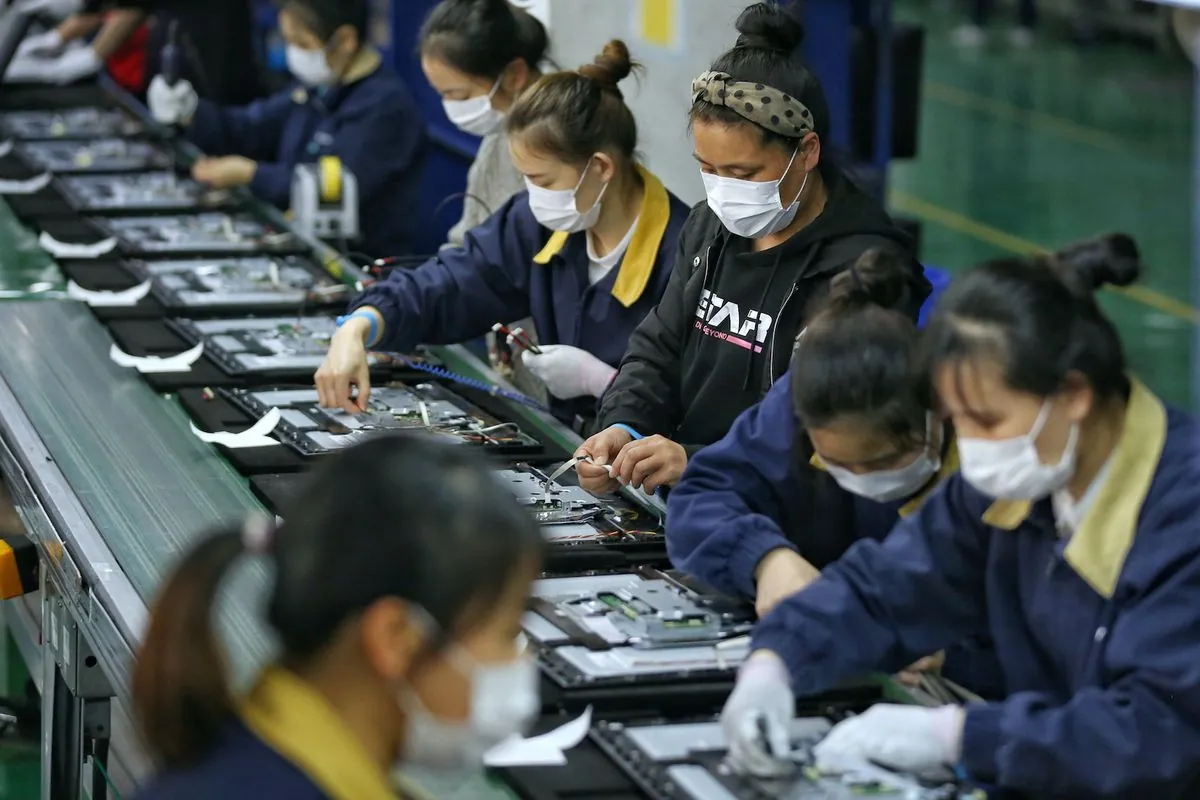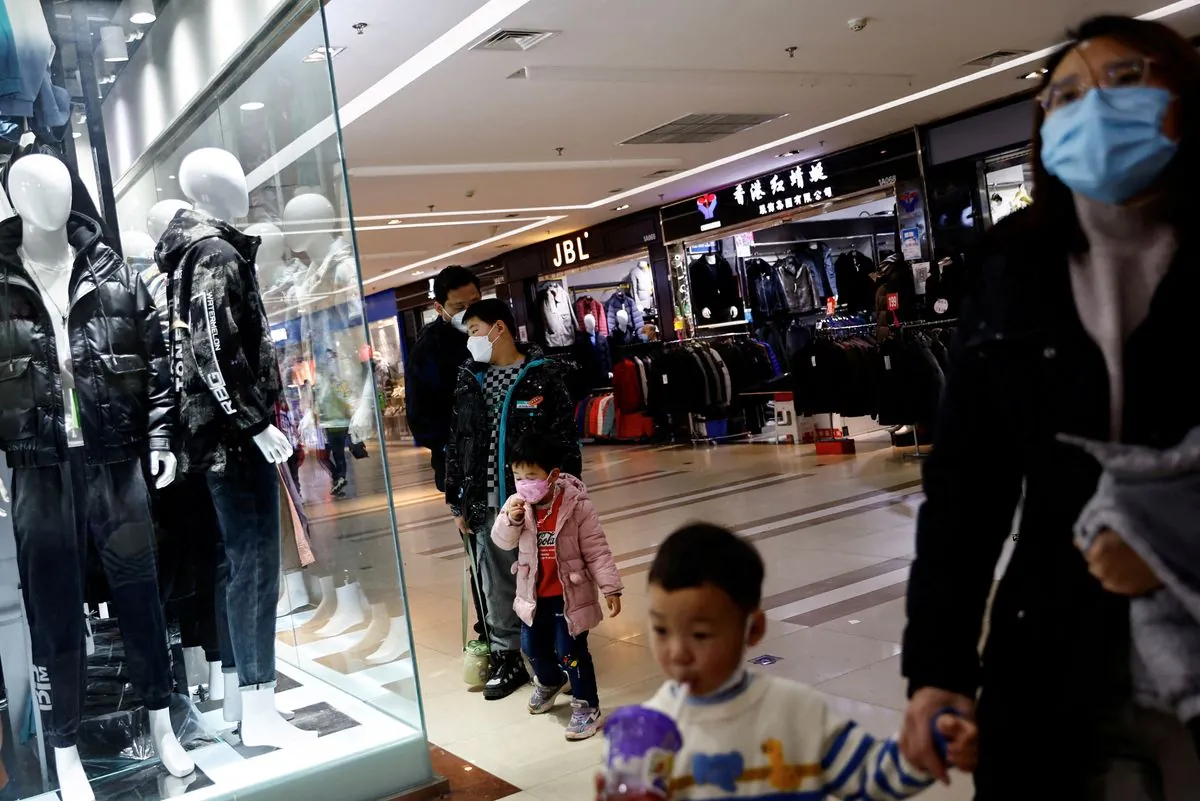China's August Economic Data Signals Slowing Growth Amid Weak Demand
China's August industrial output and retail sales growth slowed, while fixed asset investment slightly decreased. The data suggests weakening domestic demand, potentially prompting new economic stimulus measures.

Recent economic data from China indicates a slowdown in growth across key sectors, potentially signaling the need for new stimulus measures. The National Bureau of Statistics (NBS), established in 1952, released figures showing a deceleration in industrial output, retail sales, and fixed asset investment for August 2024.
Industrial output, a crucial indicator for the world's second-largest economy by nominal GDP, grew by 4.5% compared to the same period last year. This marks the slowest growth since March 2024 and falls short of the 4.8% increase anticipated by analysts. The manufacturing sector, which has been a cornerstone of China's economic success since reforms began in 1978 under Deng Xiaoping, is showing signs of strain.
Retail sales, a key measure of consumption, rose by 2.1% in August, decelerating from July's 2.7% increase. This underwhelming performance occurred despite the summer travel peak, suggesting persistent weakness in consumer spending. The trend is particularly concerning given China's ongoing transition from a manufacturing-based to a service-based economy.

Fixed asset investment for the first eight months of 2024 grew by 3.4% compared to the same period last year, slightly below the expected 3.5% expansion. This modest growth reflects cautious spending on infrastructure and property development.
These indicators point to weakening domestic demand, a challenge for China as it navigates economic headwinds. The country, which joined the World Trade Organization in 2001, has been grappling with slowing GDP growth in recent years compared to its rapid expansion in the 2000s.
China's economic planners may need to consider fresh stimulus measures to bolster growth. The country, known for its substantial foreign exchange reserves and status as the world's largest exporter, has various policy tools at its disposal. However, balancing short-term growth with long-term economic health remains a complex task.
The government's "Made in China 2025" initiative, aimed at upgrading manufacturing capabilities, faces challenges in this economic climate. Additionally, ongoing issues such as income inequality, regional development disparities, and an aging population further complicate the economic landscape.
As China continues to invest in renewable energy, electric vehicles, and its ambitious Belt and Road Initiative, the country's ability to maintain steady growth will be crucial for both domestic stability and global economic health. The world's largest high-speed rail network serves as a testament to China's infrastructure capabilities, but sustaining economic momentum in the face of weak demand will require careful policy navigation.
"The latest economic indicators reflect ongoing challenges in our economy. We are closely monitoring the situation and considering appropriate measures to support stable and sustainable growth."
As the global community watches China's economic performance, the coming months will be critical in determining whether additional stimulus measures will be implemented to address the slowdown in key sectors.


































